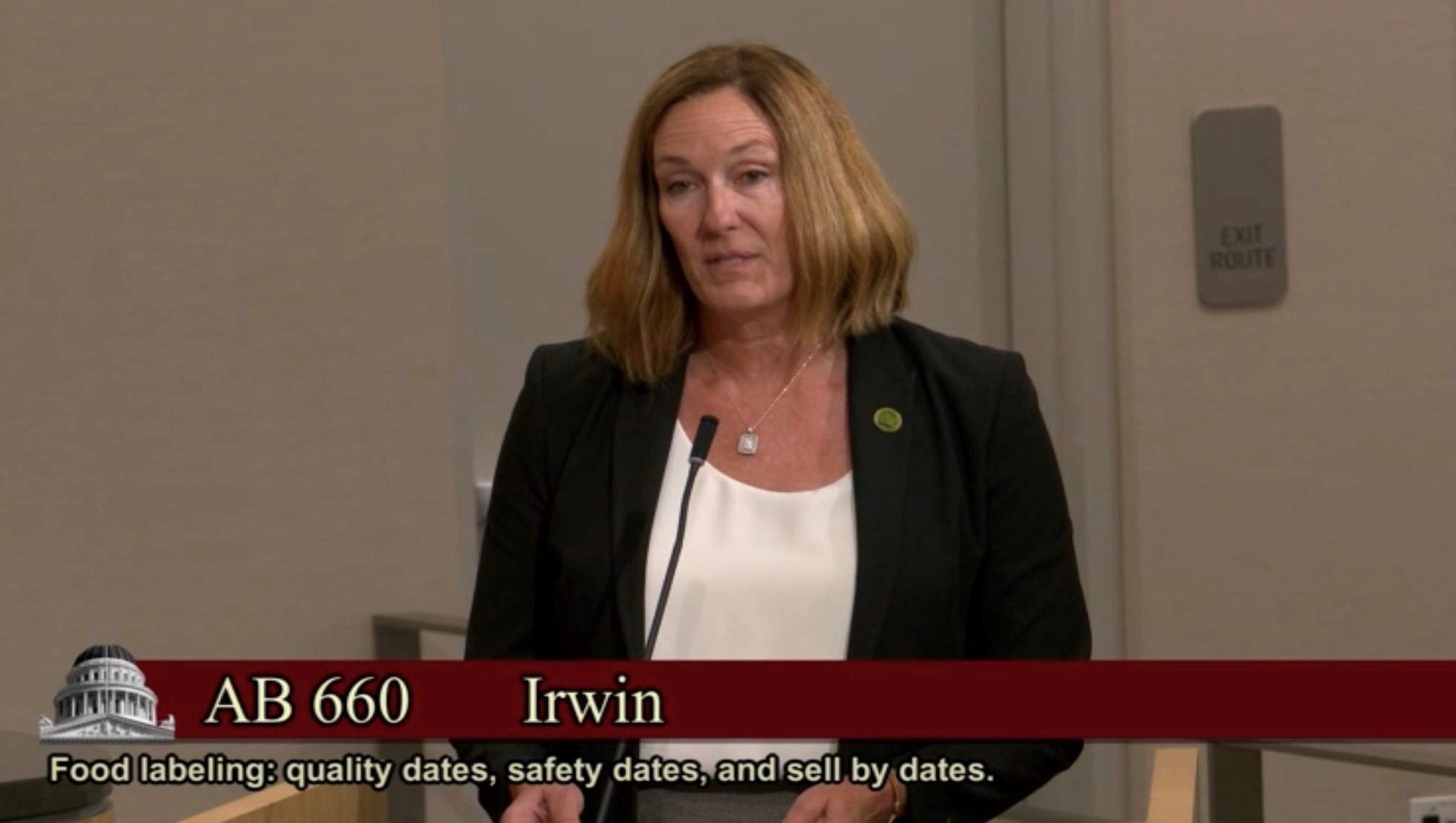- Joel Price
- (805) 370-0542

SACRAMENTO – Assemblymember Jacqui Irwin is pleased to announce passage of her landmark Assembly Bill (AB) 660 with unanimous bipartisan support today in the Senate Agriculture Committee. AB 660 would require packaged food sold in California be labeled with clear and consistent expiration dates. The removal of opposition by numerous stakeholder groups paved the way for the 5-0 vote. The proposal would assist consumers in understanding how long they can safely keep and consume products before discarding them.
“Having to wonder whether our food is still good is an issue that we all have struggled with. By strengthening labeling standards, and thus reducing food waste, AB 660 will keep money in the pockets of consumers while helping the environment and the planet,” said Assemblymember Irwin.
Recent amendments to the bill have removed the opposition from a number of stakeholders, including the California Grocers Association and the Dairy Institute of California. AB 660 builds on a 2017 law that established voluntary labeling standards, by requiring expiration date labels by July 1, 2026 to use the phrases “BEST if used by” to indicate peak freshness and “USE by” to indicate food safety. The bill prohibits the use of consumer visible “Sell-By” dates.
Studies have shown that consumers often throw away food before it has spoiled, and vague phrasing about expiration dates used on labels can be confusing. This consumer uncertainty is estimated by the Food and Drug Administration to cause about 20 percent of food waste. Making the current voluntary standards mandatory will reduce waste, save consumers money, and fight climate change by cutting the amount of food sent to landfills, where it produces methane gas as it decomposes. Methane is over 80 times more powerful as a greenhouse gas than carbon dioxide.
The bill is co-sponsored by Californians Against Waste (CAW) and the Natural Resources Defense Council (NRDC), two nonprofit groups that have led the fight to help consumers reduce waste and hold producers responsible for the harm their products do to the environment.
"Standardizing date labels is the most effective solution to reduce food waste. In a time of urgent climate change action, AB 660 serves to reduce the climate change impacts of food waste," said Erica Parker, Policy Associate at CAW.
“Too many Californians are confused by the meaning of food date labels and are tossing perfectly good food in the bin,” added Andrea Collins, Sustainable Food Systems Senior Specialist at NRDC. “This measure’s streamlined approach will help us to stop wasting food and the natural resources that went into producing and getting it to our plates.”
ReFED, a national nonprofit focused on ending food loss and waste in the U.S. is also applauding the introduction of the bill.
“Most consumers don't realize that date labels generally refer to a product's estimated quality, not whether it’s safe to consume, which leads them to prematurely throw away lots of perfectly edible food,” said Dana Gunders, Executive Director of ReFED. “Having a standardized set of date labels – one focused on quality and one focused on safety – and clearly communicating to consumers what each one means has the potential to save more than half a million tons of food from going to waste each year nationally.”
AB 954, passed in 2017 by former Assemblymember David Chiu, promoted the voluntary use of the phrases “BEST if used by” to indicate peak freshness and “USE by” to indicate food safety. The law also discouraged the use of “Sell by” date labels visible to consumers because these dates are meant only for stock rotation but are often mistaken as an indication of food safety.
Four years after that bill took effect, many food companies continue to use phrases such as “expires on” and “enjoy by,” which can do more to confuse consumers than empower them.